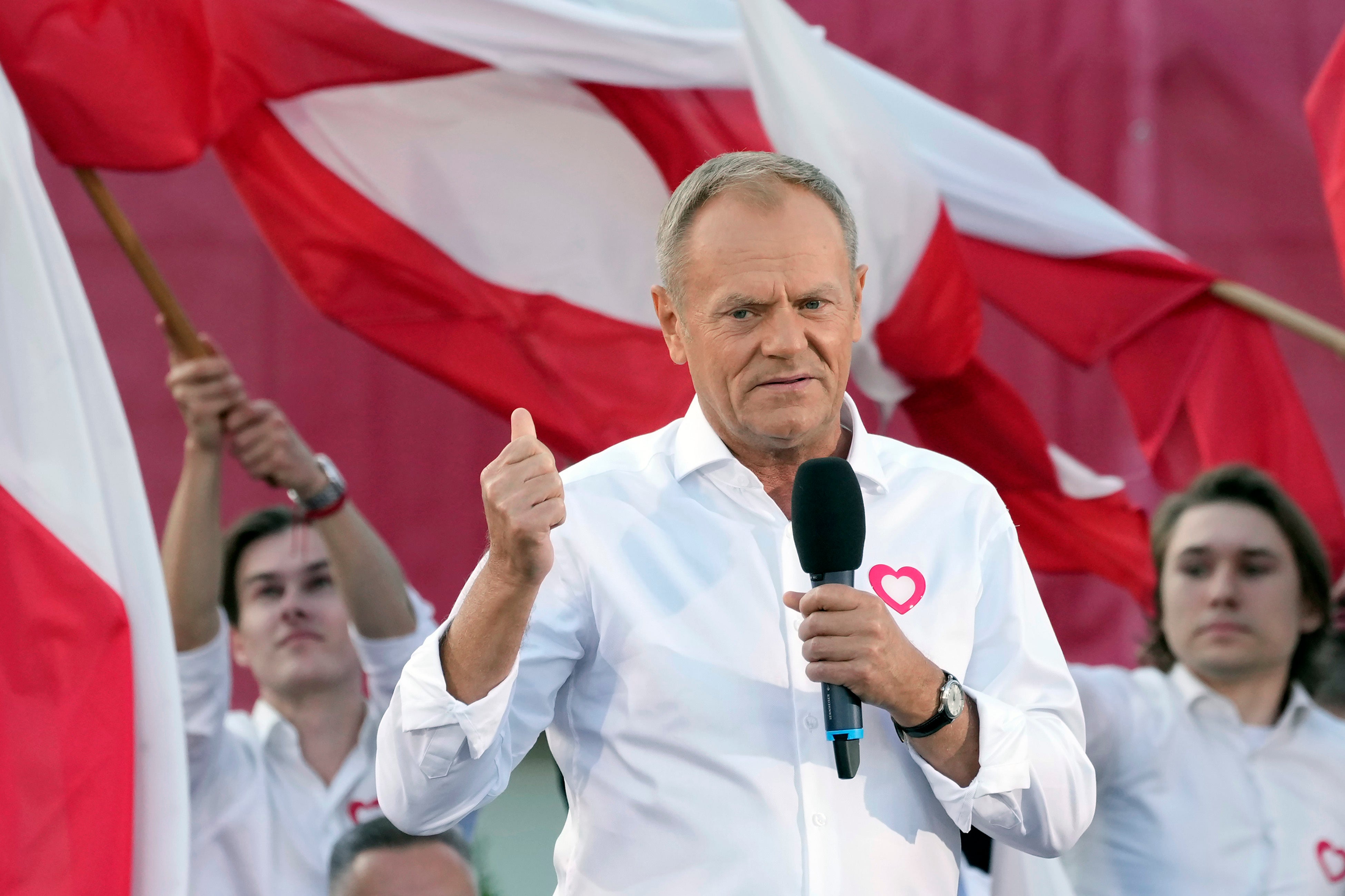Leading Polish candidates to debate on state TV six days before national election
Leading Polish candidates are gearing up for a debate seen as a chance to sway undecided voters six days before an election many Poles believe is the most important one since communism was toppled in 1989

Your support helps us to tell the story
From reproductive rights to climate change to Big Tech, The Independent is on the ground when the story is developing. Whether it's investigating the financials of Elon Musk's pro-Trump PAC or producing our latest documentary, 'The A Word', which shines a light on the American women fighting for reproductive rights, we know how important it is to parse out the facts from the messaging.
At such a critical moment in US history, we need reporters on the ground. Your donation allows us to keep sending journalists to speak to both sides of the story.
The Independent is trusted by Americans across the entire political spectrum. And unlike many other quality news outlets, we choose not to lock Americans out of our reporting and analysis with paywalls. We believe quality journalism should be available to everyone, paid for by those who can afford it.
Your support makes all the difference.Leading Polish candidates are gearing up for a debate Monday where they hope to sway undecided voters six days before a national election that many Poles believe is the most important once since communism was toppled.
Debates in Poland's post-1989 democratic era have in some cases sealed the destiny of candidates, creating a sense of anticipation surrounding the debate.
The ruling conservative Law and Justice party is leading in the polls with around 35% support, yet it is at risk of losing its majority in parliament. Its nearest rival, the Civic Coalition led by Donald Tusk, is just a few points behind but has gained momentum lately. The Civic Coalition and two other opposition groups together have greater support than the ruling party, but they are weakened by not running together. Small swings in the performance of the smaller parties could shift the final result.
The debate will be broadcast starting at 6:30 p.m. (1630 GMT) by public broadcaster TVP, which is obligated by law to conduct such debates.
Since the Law and Justice party won power in 2015, it has used TVP as a mouthpiece praising its own policies and people, and vilifying the opposition, most notably Tusk.
The debate gives Tusk get a rare chance to address undecided voters and Law and Justice supporters on state media airwaves.
Notably absent from the debate lineup is ruling party leader Jaroslaw Kaczynski, the country's de facto leader. He left Prime Minister Mateusz Morawiecki to represent their party.
Tusk and his allies accuse Kaczynski of eroding the democratic foundations of the country by taking control of the judiciary branch and public media, and putting the country on a path that could lead out of the European Union. Law and Justice insists it has no intention to leave the EU. It is running on promises to safeguard the country's security after having built a tall wall on the border with Belarus to keep out migrants.
Political commentators say Tusk stands to gain just by showing up in a forum hostile to him and friendly to Kaczynski. Tusk seized the opportunity to accuse Kaczynski of cowardice for not debating him.
“I want to shout: Jarek, where are you, where are you hiding?” Tusk said mockingly in a meeting with voters on Sunday.
A Tusk-Kaczynski debate in 2007 strongly impacted that year's parliamentary race. Kaczynski, the incumbent then too, and his party lost after Tusk came across as more in touch with the problems of regular people, knowing the prices of basic items when Kaczynski did not. Tusk also appeared more down-to-earth, inviting Kaczynski to “call me Donek,” the diminutive of Donald. His Civic Platform party won that election and governed Poland for the following eight years.
Others taking part include Szymon Holownia, the head of a centrist-agrarian coalition; Joanna Scheuring-Wielgus, a left-wing lawmaker representing her Left party, and far-right Confederation party co-leader Krzysztof Bosak.
TVP is imposing the conditions of the debate in a way that would help Law and Justice.
It was originally scheduled for the primetime hour of 9 p.m. but was moved up to 6:30 p.m. when it became clear that Tusk would participate, and Kaczynski wouldn't. It is being held in a rented studio on the far edge of Warsaw rather than in TVP's studio closer to the center, where Tusk supporters were expected to rally to greet him.
It will last only one hour, with no audience and will be followed by TVP's evening news program, giving the ruling party's mouthpiece the last word.